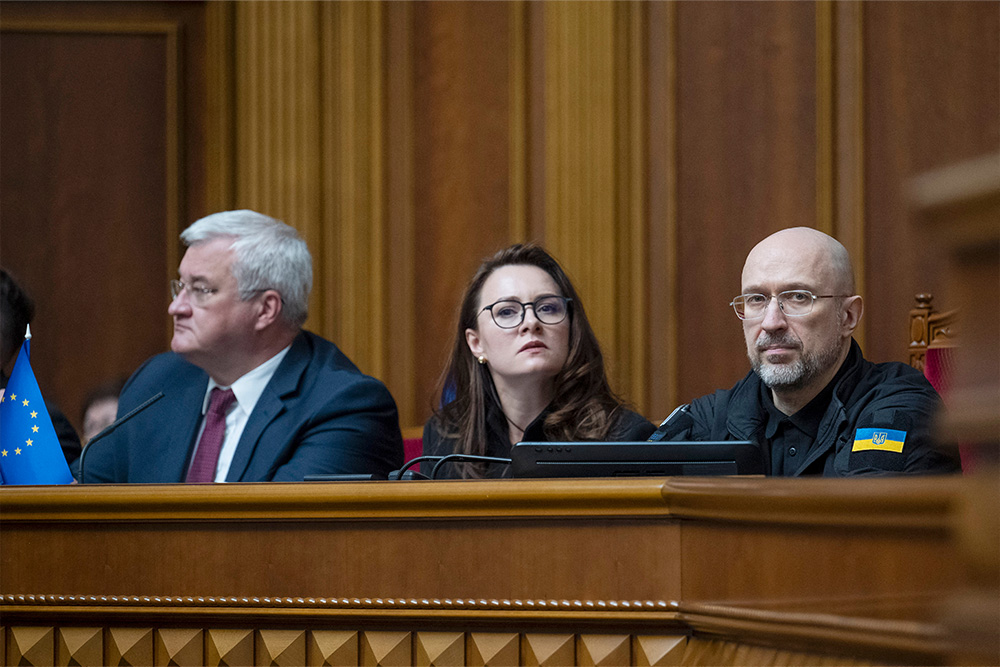Kyiv still relies heavily on foreign support for its war effort, and it has agreed to difficult terms to keep the US on side.
In this op-ed originally published by The Guardian, Luke Cooper assesses Ukraine and Russia’s economic positions, highlighting Ukraine’s relatively strong position. The author then evaluates the viability and symbolism of Ukraine’s recent minerals deal with the US, which complicates its standing.

Ukraine’s economy has greater staying power than Russia’s, but the US mineral deal...
Despite Russia’s occupation of its territory, missile attacks on its infrastructure and the enormous human costs of the war, Ukraine’s economy has been impressively resilient. Its effective military resistance against a much stronger adversary is in fact underpinned by this successful economic management. Rather than face institutional sclerosis or even collapse, Ukraine’s state capacity has been strengthened by the conflict. Through a combination of tax revenue collection and substantial networks of voluntary fundraising, the state has dramatically increased the size of its armed forces, invested in defence production and maintained a decent level of public infrastructure.
State spending on soldiers’ wages, infrastructure and logistics – including public sector procurement from private firms – has had a positive knock-on effect, supporting demand in the civilian market economy. Soldiers on the frontline earn well above the national average wage. An innovative military industrial complex, combining traditional state-owned enterprises with an ecosystem of drone startups, has been developed. These policies have stabilised the Ukrainian economy and directed it to the goal of the country’s basic survival.
But while Ukraine must be credited with these successes, it still lacks the resources domestically to meet the enormous costs of the war. External financial support has been vital to keeping the country afloat. Its wartime resilience is in this sense built on a contradiction: state capacity has grown considerably, but it has done so through a fundamental dependence on foreign financial assistance. Ukraine records a negative gross domestic savings rate, for example – an indicator of an economy that is consuming (including military spending) more each year than its annual economic output. This is made possible thanks to financial aid from Ukraine’s allies.
As I argue in my recent report, Russo-Ukrainian War: The Political Economy of the Present Balance of Forces, despite this dependency, Ukraine has made the best of the situation, and Russia’s economic position is less strong than it is often portrayed.
Russia’s economy is often seen as the success story of the all-out war – and it certainly defied expectations that it would descend into crisis under the effects of western sanctions. But this apparent strength disguises its fundamental dependency – not on its allies, but on fossil fuels. With oil and gas accounting for 30% to 50% of Russia’s government revenues over the past decade, and generating profits that sustain much of the rest of the economy, Russia is fundamentally a petrostate.
In 2022, the global oil price spike helped Russia stabilise its economy. But with demand for oil now falling, its room for manoeuvre on the home front has narrowed. The trade-offs between the war and civilian economies will now become harder to manage.
Longer-term supply and demand trends in global oil markets also pose a critical problem for Russia. The International Energy Agency predicts that over the next five years, the world will face an unprecedented supply glut, upending the price-setting power of petrostates and weakening the Russian economy.
Continue reading on The Guardian →
Courtesy of Guardian News & Media Ltd. Read the full op-ed on The Guardian website.
Luke Cooper is an associate professorial research fellow in international relations at LSE Ideas, the in-house foreign policy thinktank of the London School of Economics and Political Science, and the director of PeaceRep’s Ukraine programme.